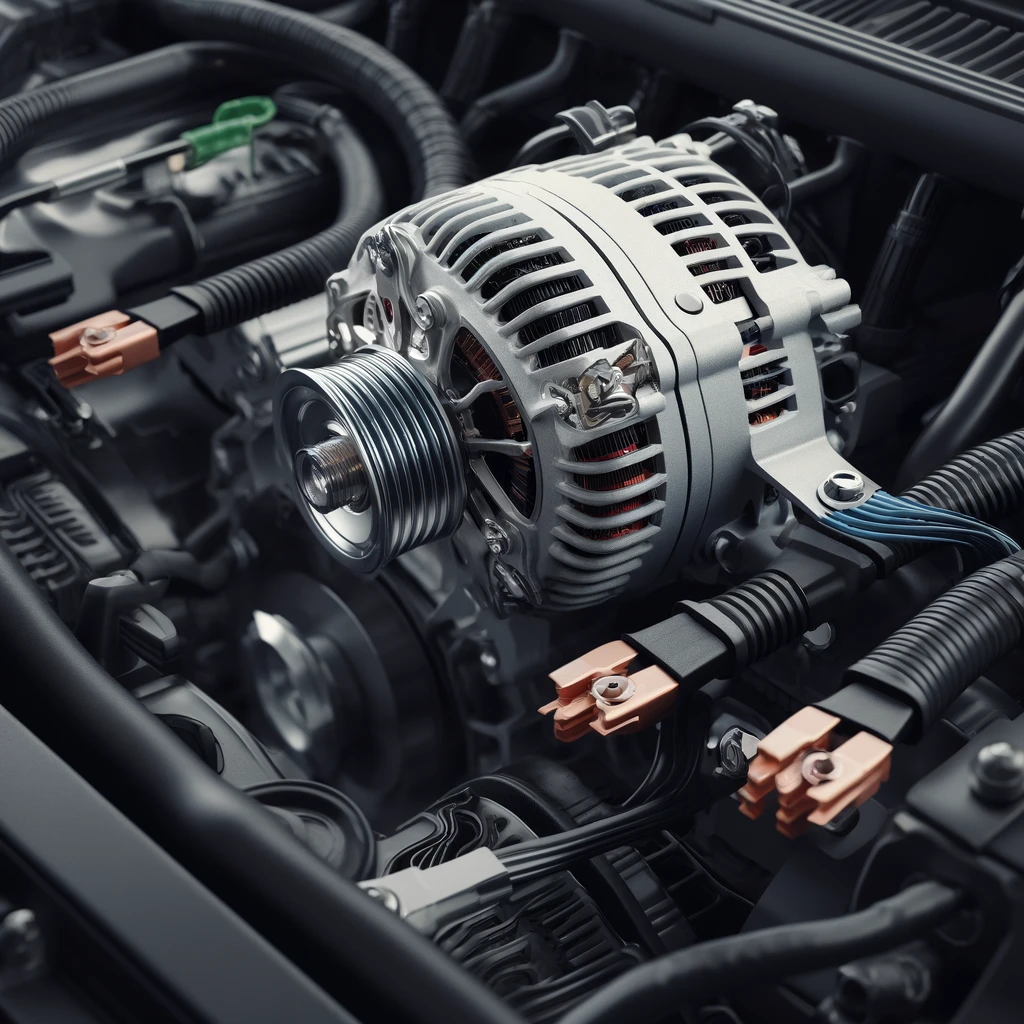Picking the perfect alternator isn’t just about grabbing one off the shelf—it’s about matching your vehicle’s needs to avoid headaches down the road. A mismatch can leave you underpowered or frying circuits, while the right choice keeps everything humming. In this guide, we’ll cover how to select an alternator, from deciphering specs to weighing OEM versus aftermarket options. Whether you’re replacing a dead unit or upgrading for more juice, you’ll leave armed with the know-how to shop smart.
Decoding Alternator Specs
The big number to know is amperage—how much electrical current the alternator pumps out. It’s measured in amps, and your car’s stock unit (say, 80 amps) is built for its baseline needs—lights, radio, ignition. Too low, and it can’t keep up; too high, and you’re overpaying for power you don’t need.
How do you figure it out?
- Stock Check: Look at your old alternator (it’s stamped on the case) or your manual. A 2010 Camry might run 100 amps stock.
- Extra Load: Added a subwoofer or winch? Bump up 20-50 amps. A 120-amp unit might replace that 100-amp one safely.
- Ask Around: Forums or parts stores can confirm—AutoZone’s fitment tool is handy too.
More amps mean more capacity, but don’t go overboard—overkill strains the belt and costs extra.
Compatibility Is King
Alternators aren’t one-size-fits-all. Your car’s make, model, year, and engine dictate fit. Here’s what to match:
- Mounting: Bolt holes and brackets must align—check your old one’s layout.
- Pulley: Same size and groove count as the serpentine belt (e.g., 6-rib).
- Wiring: Plugs and terminals need to mate perfectly—mismatches mean no power.
Use your VIN at a parts store or online to nail this. A 2015 F-150 3.5L EcoBoost has a specific alternator; the 5.0L version’s won’t fit. Get it wrong, and you’re stuck mid-install.
OEM vs. Aftermarket: The Showdown
You’ve got two paths:
- OEM (Original Equipment Manufacturer): Straight from your car’s maker (Ford, Toyota, etc.).
- Pros: Perfect fit, top quality, often 1-2 year warranty.
- Cons: Pricey—$200-$500, sometimes double aftermarket.
- Aftermarket: Third-party brands like Bosch or Denso.
- Pros: Cheaper ($100-$300), wider options (high-output models).
- Cons: Quality varies—some flake out fast.
OEM’s the gold standard for newer cars or peace of mind. Aftermarket shines for budget fixes or upgrades—Joe swapped his Chevy’s 130-amp OEM for a $180 200-amp Denso to power his camper setup, no issues in two years.
New vs. Remanufactured
Another fork in the road:
- New: Fresh off the line, $150-$500, max reliability, longest life (7-10 years).
- Remanufactured: Rebuilt with new guts, $80-$300, solid if from a good source (warranty key).
Remans save cash—perfect for older cars. New’s better for high-mileage keepers. Either way, check the warranty: 1-2 years for new, 6-12 months for remans.
Brand Matters
Stick to names with street cred—Bosch, Denso, ACDelco, Valeo. They’ve got decades of trust. No-name $50 specials from sketchy sites? They might die in months. Reviews and forums (like Reddit’s r/MechanicAdvice) can steer you right.
Warranty Wisdom
A warranty’s your safety net. Look for:
- Duration: 1-2 years standard; lifetime deals exist (rare).
- Scope: Covers parts and labor? Ideal—reinstallation ain’t cheap.
Tom learned this hard—his $120 reman crapped out in 90 days, no warranty. A $150 ACDelco with a 2-year guarantee would’ve saved the redo.
Real-World Picks
- Daily Driver (e.g., Honda Accord): OEM or reman Denso, 100 amps, $150-$250.
- Modded Ride (e.g., Jeep Wrangler): Aftermarket high-output (150-200 amps), $200-$350.
- Beater (e.g., ’99 Civic): Cheap reman, 80 amps, $80-$120, warranty a must.
Conclusion
Choosing an alternator means balancing specs, fit, and budget. Nail the amperage, confirm compatibility, and pick a trusted source—OEM for certainty, aftermarket for value. With this guide, you’ll dodge the guesswork and keep your car powered right. Shop smart, and that new alternator will hum along for miles.

